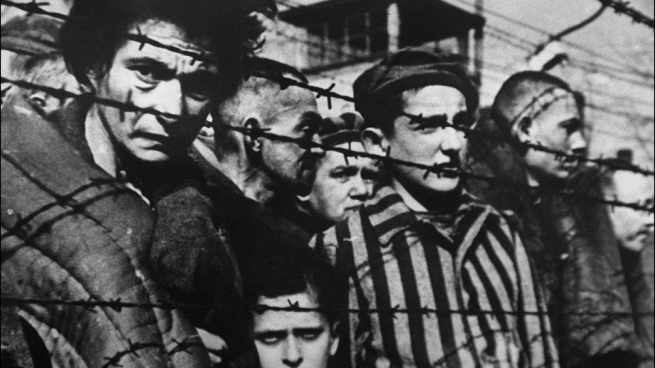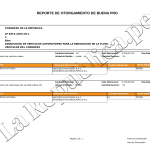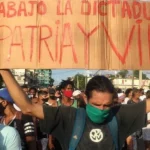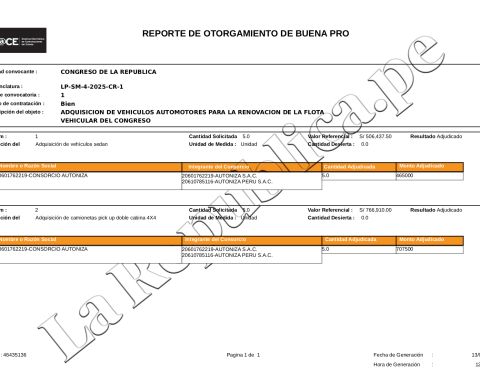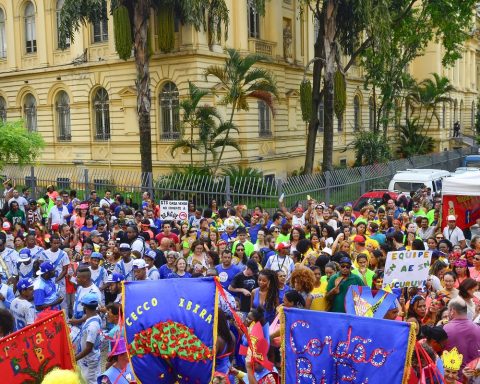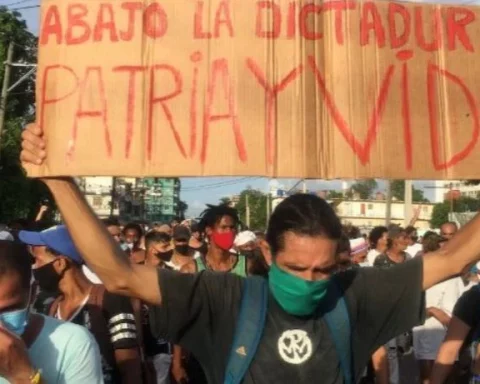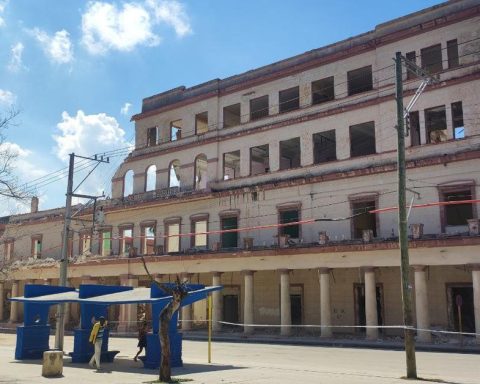Thursday will mark the 77th anniversary of the liberation by Soviet troops -on January 27, 1945- of the Auschwithz-Birkenau concentration camp, which the Nazi German regime had installed in Poland during World War II with the purpose of eliminating the Jewish people from occupied Europe, and to pay tribute to the victims of that genocide that day is commemorated throughout the world as the International Day of Commemoration in Memory of the Victims of the Holocaust.
The date was officially established on November 1, 2005 by the General Assembly of the United Nations, to support the development of educational programs that remember the Holocaust and prevent future genocides, and in Argentina different activities are carried out this whole week with that objective.

On Thursday, Foreign Minister Santiago Cafiero will head the official act that will take place at 1 pm this Thursday at the Holocaust Museum, in Montevideo 919 of this capital, chaired by Marcelo Mindlin. Along with Cafiero will be Mindlin, the Ministers of Education, Jaime Perczyk, and of Justice and Human Rights, Martín Soria; survivors of the Shoah residing in Argentina, representatives of DAIA, AMIA, the Simon Wiesenthal Center, the Anne Frank Center, the Auschwitz Institute, the entities ICUF, BAMA, B’nai B’rith Argentina and diplomatic representatives, informed the Chancellery.
On Monday, the Museum was the scene of a visit by 14 accredited ambassadors in the country, who toured the permanent exhibition of that institution, in an initiative organized in conjunction with the Embassy of Israel.
“The memory of the Holocaust is a categorical imperative for all of us who believe that there is no place in the world for such barbarism to occur again. In this sense, I believe that education is our most effective tool. Our true commitment to the future,” he said. to Télam the ambassador of Israel in Argentina, Galit Ronen.
The diplomat recalled that two years ago, recently arrived in Argentina, she participated together with President Alberto Fernández in the commemoration of the 75th anniversary of the liberation of Auschwitz-Birkenau, which took place in Jerusalem, on the Argentine president’s first trip abroad.

“At that time, like today, leaders and specialists had stressed the importance of focusing on memory education,” Ronen recalled.
In this sense, he considered that “Argentina has a history that positions it as a regional reference, since it is the only Latin American country that is a full member of the IHRA (the International Holocaust Remembrance Alliance)” and in accordance with its commitment to this cause, it has adopted the IHRA definition of antisemitism in the year 2020.
“The work that lies ahead in Argentina and in the world is immense, but whenever a country decides to honor the dead and educate in values to prevent the horrors of the Shoah from happening again, without a doubt, those actions indicate that we are on the right path,” Ronen concluded.
Also to commemorate this date, this week the Delegation of Argentine Israelite Associations (DAIA) released a commemorative video and other material prepared between the Argentine Israelite Mutual Association (AMIA) and the United Nations Argentina, whose main objective will be to highlight the importance of that the memory of the Holocaust be passed down from generation to generation.
“We must never forget that the Holocaust could have been prevented,” warned the Secretary General of the United Nations, António Guterres, on the occasion of the dissemination of the video. He added: “The desperate pleas of the victims were ignored. Very few spoke, very few listened, and even fewer stood up in solidarity. Remembering the past is essential to safeguarding the future.”

In the same sense, the president of the AMIA, Ariel Eichbaum, pointed out that “the mission of educating the new generations and promoting in them respect for others, peace and justice is a crucial aspect that goes hand in hand with the imperative ethical not to forget, to prevent any gesture of intolerance, and to denounce any expression of hate and xenophobia”.
Meanwhile, the video released this week by the DAIA is focused on the faces and numbers of the Holocaust.
Between photos of victims and no voice-over story, the overlay announces figures. “6,000 Jews per day were exterminated in Auschwitz-Birkenau and 7,000 people exterminated by medical experiments at the hands of Mengele,” he recalls.
And he adds: “1,500,000 exterminated children, 700,000 people forced to move in death marches and 334,500 murdered from other groups.”
It is also recalled that there were “6 million Jews massacred in 74 months, 81,081 victims every month, 13,510 stolen lives every five days, 339 victims every three hours and 2 murders every 70 seconds”.
And he concludes: “Numbers measure evil. Our memory makes memory infinite.”
In addition, from the DAIA they reported that both in the province of Córdoba and in Santa Fe there will be commemorative activities, for which different authorities of that institution will travel especially.
The Foreign Ministry highlighted that “the Argentine Republic has a strong commitment to the Memory of the Holocaust as part of its foreign policy on human rights in the area of prevention of atrocities, and is a member country of the International Alliance for the Memory of the Holocaust (IHRA, for its acronym in English)”.
He recalled that “in November 2005, the United Nations General Assembly approved resolution 60/7, designating January 27 as the annual International Day of Commemoration in memory of the Victims of the Holocaust, recalling the liberation in 1945 of the Auschwitz-Birkenau concentration and extermination camp, the largest of those created by the Nazi regime”.
The Holocaust Museum -he also highlighted- “is one of the member organizations of the Local Chapter (LC) of the IHRA, an instance of articulation between the State and civil society to promote policies and programs in accordance with the IHRA agenda in our country. “.

